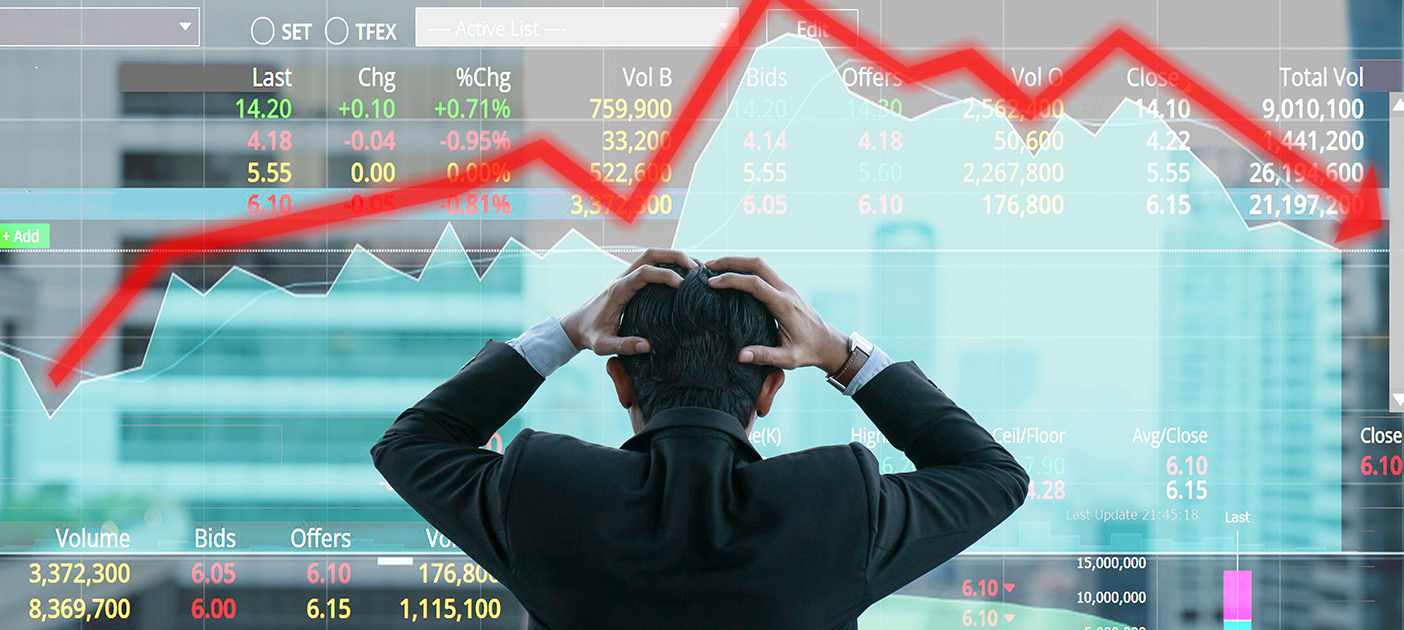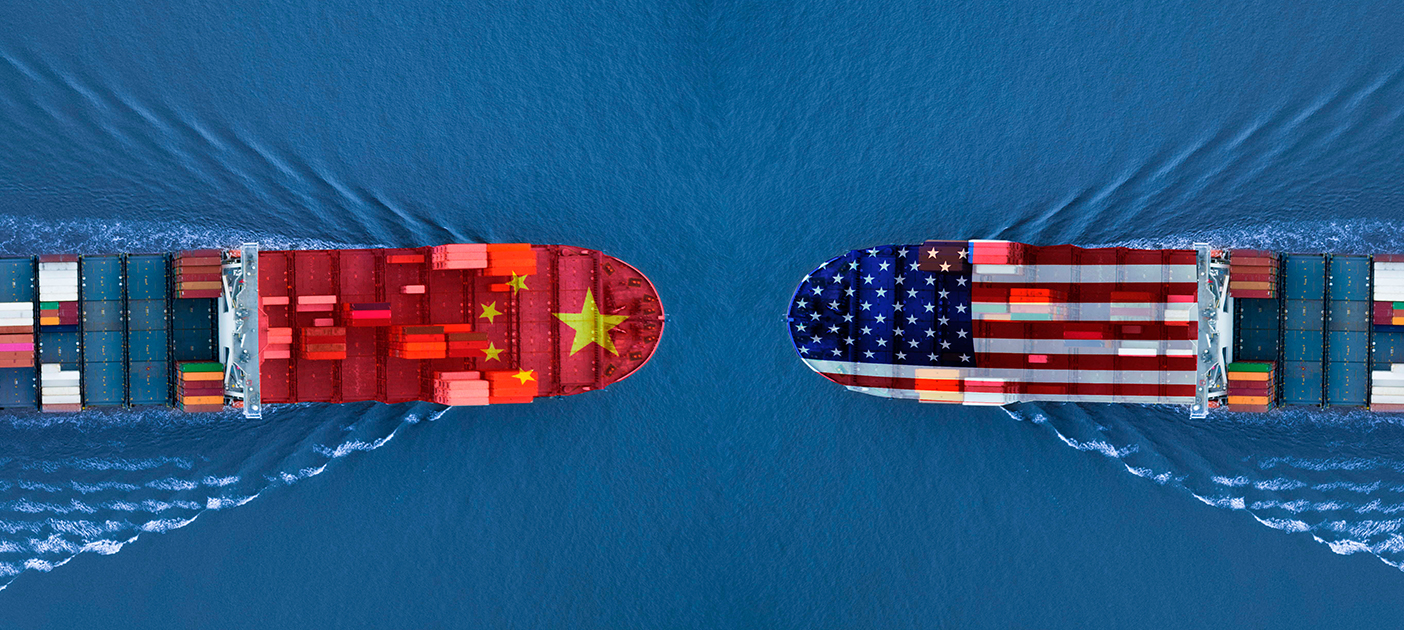US Tariffs and how they might impact your finances
By Lynette Tan
![]()
If you’ve only got a minute:
- Trump’s proposed tariffs could lead to higher costs for daily essentials like groceries, gadgets, and travel, due to pricier imports and disrupted global supply chains.
- Tariffs may slow global growth, cause stagflation, shake currency markets, and create stock market volatility. This affects job security and international investments, especially in trade-reliant sectors.
- Review your spending, diversify your investments and currency exposure, and build an emergency fund. Prudent financial planning is your best defence in uncertain times.
![]()
Tariffs have stormed back into the spotlight since early April, hogging headlines and rattling markets. While it has widespread impact on the macro economy and global markets have seen a fair share of volatility, what type of impact can the average man-on-the-street expect?
What are Tariffs?
Tariffs are taxes imposed by a government on imported goods and services. They make foreign products more expensive than locally produced ones, helping to protect domestic industries from foreign competition.
Typically, they are a percentage of a product's value. For example, a 25% tariff on a $10 product would mean an additional $2.50 charge. Companies importing foreign goods pay the tax to the government, and they can choose to pass on some or all the cost to customers.
Trump’s Tariffs
In early April 2025, Trump announced a set of tariffs to be implemented on United States’ trading partners, ranging from a baseline of 10% to 145% for specific countries.
To put it simply, Trump believes the US is getting a bad deal in global trade. In his view, other countries have been selling cheap goods to the US - this hurts US-produced goods, local jobs and US companies. At the same time, these countries are putting up barriers that make US products less competitive abroad.
Thus, Trump believes the tariffs are necessary to address trade imbalances and protect American jobs and manufacturing by using tariffs to eliminate trade deficits.
Potential impact of tariffs on your finances:
When governments impose tariffs, it’s often in response to geopolitical tensions or to protect domestic industries. But while these policies may seem far removed from daily life, they can have very real consequences on your wallet. Here are 5 ways tariffs could impact your personal finances:

Imports – from corn to iPhones – might get pricier. Singapore, being the ultimate import king, could see grocery bills, gadget prices, and even your go-to café brunch inch upward.
Similarly, if global supply chains are disrupted and businesses face higher production costs, these too are often passed on to end consumers. Over time, you might find yourself paying more for the same basket of groceries, school supplies, or even services that rely on imported materials.
Impact on your wallet:
- Higher grocery bills
- Increased costs for consumer electronics and home appliances
- More expensive imported fashion, cosmetics, and even cars
- Price hikes in restaurants and cafés due to rising ingredient costs
What you can do: It’s a good time to review your spending - trim non-essentials like frequent dining out, underutilised subscriptions, or impulse buys. Be mindful about spending on wants and compare prices across different platforms as tariffs may cause imported goods to be more expensive than before.
2. StagflationTariffs can also contribute to an economic phenomenon called stagflation—a rare but serious situation where inflation (rising prices) is paired with stagnant or declining economic growth.
Here’s how it happens - tariffs increase production costs for businesses, which then raise prices to protect their margins. At the same time, reduced global trade can slow economic activity, lead to job losses in export-reliant industries, and dampen business investment. As prices go up but incomes don’t rise at the same pace—or worse, employment levels drop—consumers can feel the squeeze from both sides.
What this means for you:
- Purchasing power may decline as inflation outpaces wage growth
- Job security could be affected if your industry relies on global trade or exports
- Investments, particularly in equities or global-facing sectors, may underperform due to slower growth
What you can do: Park some of your idle cash in high-interest savings accounts or short-term fixed deposits instead of a simple savings account, so that your funds keep pace with inflation. Continue to invest in a diversified portfolio in a disciplined manner over the long term to grow your wealth.
3. Currency risksTariffs can also stir up volatility in the currency markets. When tariffs lead to uncertainty or trade imbalances, investors may move their money away from affected countries, weakening their currencies. If major economies like the US or China are involved in trade disputes, the ripple effects can be global and Singapore, as a trade-reliant hub, is particularly exposed.
For Singaporeans, that can mean a weaker SGD and a stronger USD - bad news if you’re paying for overseas tuition, travel, or online shopping in foreign currencies. It could also affect returns on overseas investments.
Currency implications on your finances:
- Higher costs for overseas travel, tuition, or online shopping in foreign currencies
- Fluctuating values in foreign currency savings or investments
- Businesses with foreign currency exposure may pass on higher costs to consumers
What you can do: To protect yourself from currency risks, it's wise to diversify your foreign currency holdings across multiple stable currencies and use multi-currency accounts or digital wallets that offer low fees and flexible exchange options. This helps cushion the impact of sudden exchange rate swings, especially if you have ongoing foreign currency needs like overseas tuition, travel, or mortgage payments.
If you intend to travel, plan by using digital wallets to buy currency when rates are favourable or setting up automated monthly transfers. –This can smooth out costs over time.
For online shoppers or those making big purchases abroad, using cards with no foreign transaction fees or locking in rates with prepaid multi-currency cards can help avoid hidden costs.

Investors would have already been on a roller coaster ride since early April. Anxiety around the rollout of the tariffs fuelled a 4-day rout for stocks, with the S&P500 This happened just before Trump announced a 90-day pause for tariffs on 9 April, which led to the S&P 500 skyrocketing over 9.52% to its biggest one-day gain since 2008.
Given the ongoing uncertainty, investors will need to sit tight and be prepared for volatility. And the effect is not limited to the stock market. When major economies like the US, China, or the EU impose tariffs on one another, it can lead to trade disruptions, reduced profits for multinational companies, and a general pullback in investor confidence.
What this means for investors:
- Potential decline in international equity values due to lower corporate earnings
- Increased volatility in sectors tied to global trade
- Reduced bond yields if tariffs slow down global economic growth, leading central banks to cut rates or maintain low-interest environments
This volatility doesn't impact all countries and sectors equally. Some industries are more sensitive to trade restrictions and could see sharper declines in stock value or profitability. According to our Chief Investment Officer, here are some investments to focus on for the near term.
Sectors to look out for:
- Favour markets with fiscal stimulus capacity: Some countries, like China and parts of Europe, are in a better position to deal with economic slowdowns. For example, China doesn’t owe as much debt, so its government has more room for stimulus to keep the economy going. In Europe, a new €500 billion infrastructure plan shows they’re starting to focus more on boosting growth through government spending.
- Favour companies reshoring to the US: Certain industries - like semiconductors, pharmaceuticals, and aerospace - are moving their manufacturing back to the US. These companies often earn higher profits and are getting support from the government through incentives under the Inflation Reduction Act. This means they’re more likely to handle global supply chain disruptions better than others.
If you're invested in global funds or sector-specific ETFs, it may be worth reviewing your portfolio with an eye on tariff-related exposure. Diversifying across regions and industries can help manage risk during turbulent times.

Singapore’s economy is deeply entwined with global trade. As a regional hub for logistics, electronics, pharmaceuticals, and financial services, the country thrives on the free flow of goods and services. Tariffs, can thus, threaten to disrupt this delicate balance.
When global companies face higher import/export costs, they may respond by scaling back production, shifting operations to other countries, or freezing hiring. For Singapore, which hosts many multinational firms and export-reliant industries, this can translate into job insecurity.
What this means for employees:
- Reduced hiring or wage growth in export-oriented sectors
- Higher risk of layoffs if companies shift operations or face reduced global demand
- Greater competition for jobs, particularly in trade-exposed industries
What you can do: It is prudent to build an emergency fund covering at least 3 to 6 months’ (or 12 months if you have dependents) worth of expenses to cover living expenses in case of job loss or unexpected economic downturns. To safeguard your career, it is timely to upskill, diversify your competencies, or explore sectors less vulnerable to external shocks, such as healthcare, digital services, or domestic-focused industries.
In times of global uncertainty, staying financially resilient is key. By practising prudent financial planning, staying informed, and making strategic choices, consumers can better protect their finances and stay on track toward their long-term goals, no matter how the global landscape shifts.
Ready to start?
Need help selecting an investment? Try ‘Make Your Money Work Harder’ on digibank to receive specific investment picks based on your objectives, risk profile and preferences.
Speak to the Wealth Planning Manager today for a financial health check and how you can better plan your finances.
Disclaimers and Important Notice
This article is meant for information only and should not be relied upon as financial advice. Before making any decision to buy, sell or hold any investment or insurance product, you should seek advice from a financial adviser regarding its suitability.






That's great to hear. Anything you'd like to add? (Optional)
We’re sorry to hear that. How can we do better? (Optional)